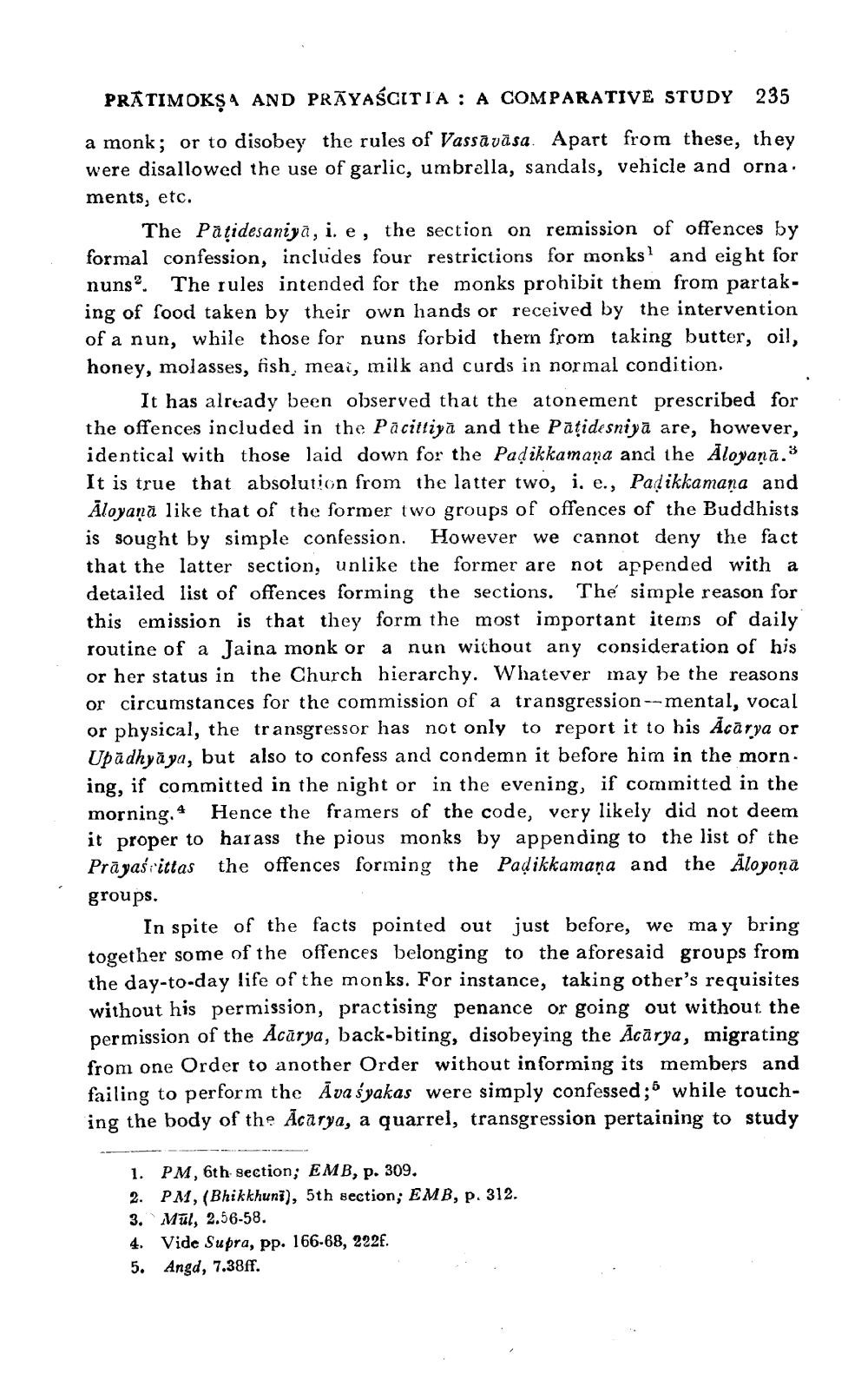________________
PRĀTIMOK$4 AND PRÄYAŚCITIA : A COMPARATIVE STUDY 235
a monk; or to disobey the rules of Vassāvāsa. Apart from these, they were disallowed the use of garlic, umbrella, sandals, vehicle and orna. ments, etc.
The Pațidesaniya, i. e, the section on remission of offences by formal confession, includes four restrictions for monks and eight for nuns. The rules intended for the monks prohibit them from partaking of food taken by their own hands or received by the intervention of a nun, while those for nuns forbid thern from taking butter, oil, honey, molasses, fish, meai, milk and curds in normal condition.
It has already been observed that the atonement prescribed for the offences included in the Pacittiya and the Patidesniya are, however, identical with those laid down for the Padikkamana and the Aloyanā.3 It is true that absolution from the latter two, i, e., Padikkamaņa and Aloyaņā like that of the former two groups of offences of the Buddhists is sought by simple confession. However we cannot deny the fact that the latter section, unlike the former are not appended with a detailed list of offences forming the sections. The simple reason for this emission is that they form the most important items of daily routine of a Jaina monk or a nun without any consideration of his or her status in the Church hierarchy. Whatever may be the reasons or circumstances for the commission of a transgression--mental, vocal or physical, the transgressor has not only to report it to his Aca Upadhyā ya, but also to confess and condemn it before him in the morn ing, if committed in the night or in the evening, if committed in the morning. 4 Hence the framers of the code, very likely did not deem it proper to harass the pious monks by appending to the list of the Prāyası ittas the offences forming the Padikkamana and the Aloyonā groups.
In spite of the facts pointed out just before, we may bring together some of the offences belonging to the aforesaid groups from the day-to-day life of the monks. For instance, taking other's requisites without his permission, practising penance or going out without the permission of the Acārya, back-biting, disobeying the Acārya, migrating from one Order to another Order without informing its members and failing to perform the Āva śyakas were simply confessed;5 while touching the body of the Acārya, a quarrel, transgression pertaining to study
1. PM, 6th section; EMB, p. 309. 2. PM, (Bhikkhuni), 5th section; EMB, p. 312. 3. Múl, 2.56-58. 4. Vide Supra, pp. 166-68, 222f. 5. Angd, 7.38ff.




